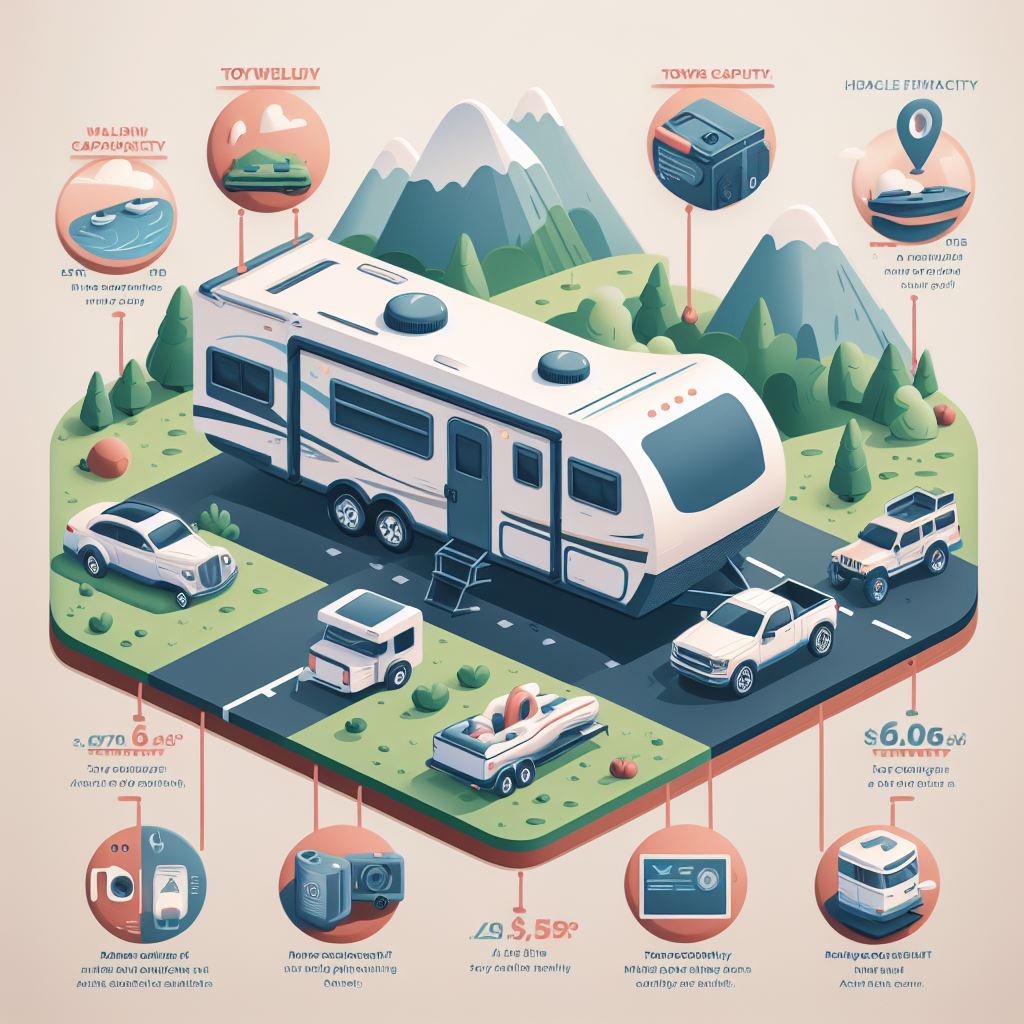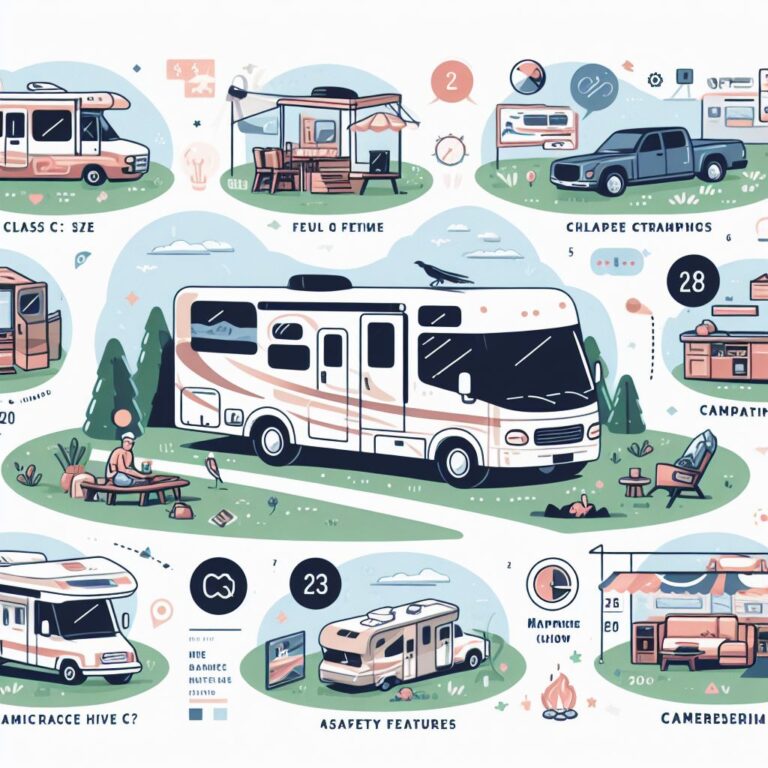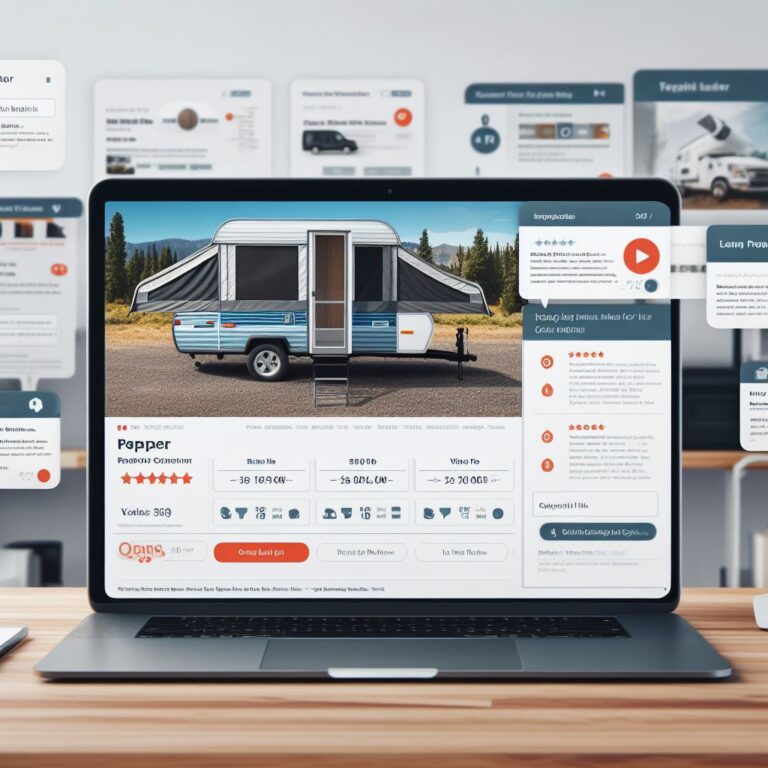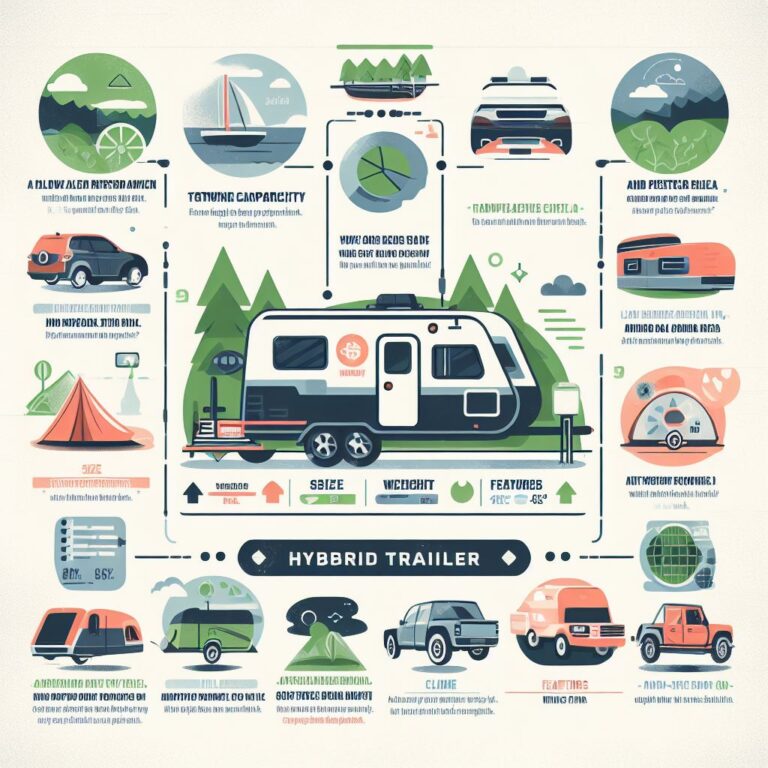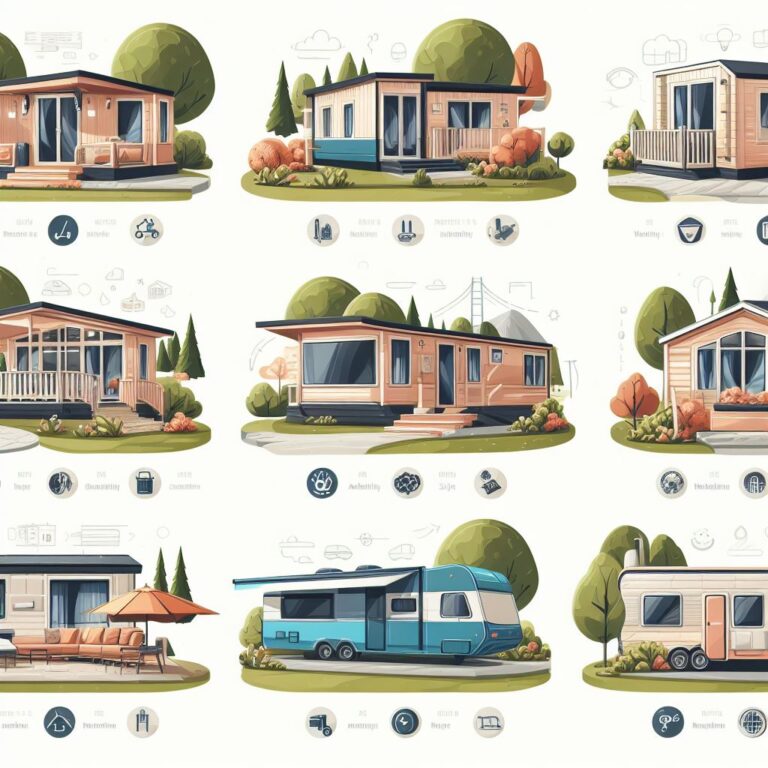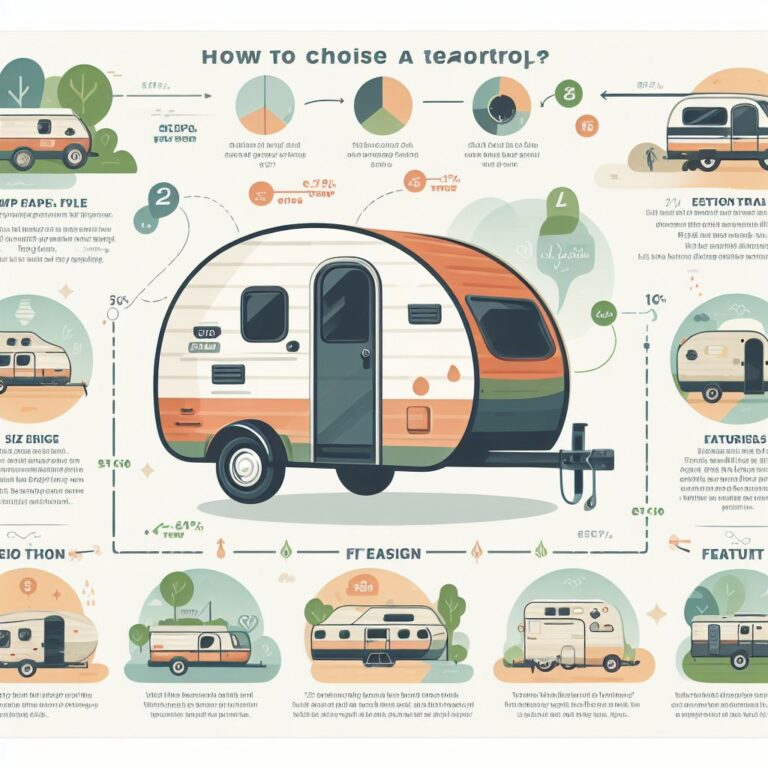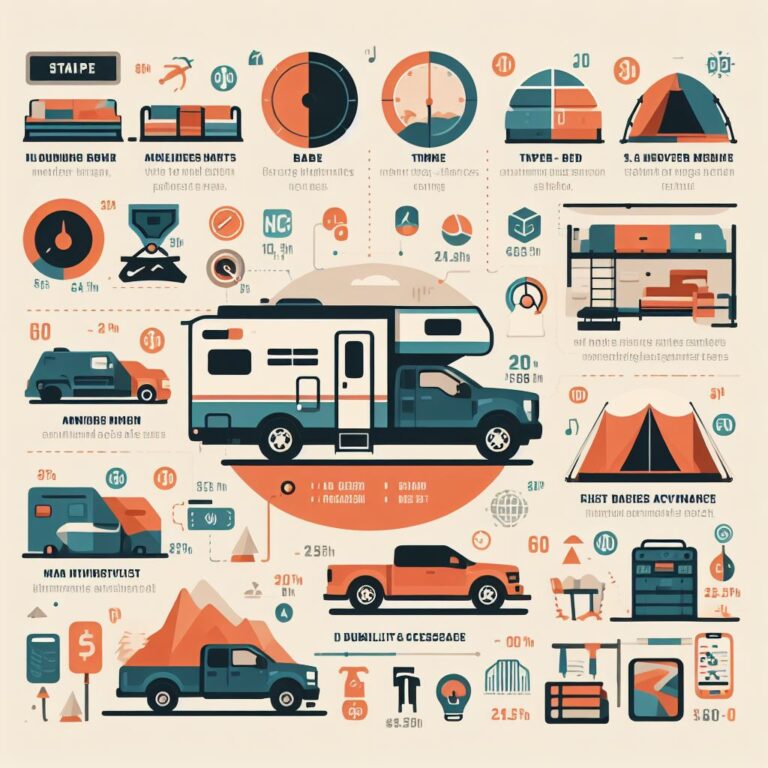How To Choose Destination Trailer $70,000 – $120,000 Sleeps up to 8 9.7 to12.5 M(32-41 FT)
Understanding the Basics of Destination Trailers
Destination trailers, also known as park models or stationary RVs, represent a unique niche in the vast world of recreational vehicle options. Unlike other RV types that exude a sense of mobility, these units are engineered for semi-permanent placement at a campground or a private property. While they still offer the benefit of mobility akin to their travel trailer siblings, destination trailers are closer to a residential living experience while providing a high level of enjoyment wrapped in the freedom and flexibility of the RVing lifestyle.
Typically, these specialized trailers are larger in size compared to traditional travel trailers, contributing to a more spacious living area thus enhancing comfort and convenience for longer or even full-time stays. Destination trailers often feature a much broader range of amenities and home-like features such as full-size refrigerators, larger water heaters, expansive patio doors, sizeable bedroom areas, and sometimes an additional loft space. The goal is not merely to provide a place to sleep and eat between adventures, but to transform every moment into a unique vacation experience.
• Destination trailers are designed for semi-permanent placement: Unlike conventional RVs that are built for constant mobility, destination trailers are created with the concept of stationary or semi-stationary use in mind. This makes them an ideal choice if you have a favorite campground where you spend most of your vacation time or own a private property where you’d like to set up a comfortable and convenient living space.
• They offer residential-style living: While still maintaining the benefits of mobile homes, destination trailers come closer to providing a residential-like experience. The interiors are usually more spacious than traditional travel trailers, offering more room for movement and relaxation especially during longer stays.
• Enhanced comfort and convenience features: One thing that sets destination trailers apart from other types of RVs is their range of amenities. These often include full-size refrigerators, larger water heaters, expansive patio doors and sizeable bedroom areas – all aimed at enhancing comfort levels. Some models even feature additional loft spaces which can be used as extra sleeping quarters or storage areas.
• Focus on creating unique vacation experiences: The goal behind designing these units is not just to provide users with basic necessities such as sleeping arrangements and cooking facilities but also to ensure every moment spent inside becomes part of an unforgettable holiday experience. Whether it’s enjoying panoramic views through large windows or having family meals in open-plan kitchens, every aspect is tailored towards making vacations feel special.
In conclusion, understanding the basics about destination trailers can help potential buyers make informed decisions based on their specific needs and preferences. With their home-like comforts combined with the freedom offered by an RV lifestyle, these units present a perfect blend between permanent residency and adventurous traveling – truly offering ‘the best of both worlds’.
The Importance of Size and Length in a Destination Trailer
Destination trailers are not one-size-fits-all. The actual size and length of these large recreational vehicles play a critical role in determining their comfort, practicality and functionality. Opting for a larger, more extensive model provides roomier interiors, increasing the living space and allowing for more sophisticated accommodation features, such as separate bedrooms, larger bathrooms, and more substantial kitchen and dining areas. However, a larger size could also mean increased fuel consumption and more challenging maneuverability, especially in crowded camping sites or narrow roads.
Choosing the right length for a destination trailer, on the other hand, is often a balance between portability and comfort. Trailers of shorter lengths are easier to tow and maneuver, making them an ideal choice for first-time users or those frequently on the move. However, they may compromise on some space, potentially leading to cramped living conditions. Ultimately, determining the best length will depend on your needs, preferences, and the nature of your journey. Opt for the right balance to secure a trailer that is both comfortable and practical for your adventures.
With this in mind, a few key points to consider when determining the size and length of your destination trailer include:
• The number of people that will be using the trailer: A larger family or group may require more space for sleeping, cooking, and general living.
• Your travel habits: If you plan on moving frequently from one location to another, a smaller and lighter model might be better suited. Conversely, if you intend to stay in one place for extended periods, a larger model with more amenities could be preferable.
• The type of vehicle used for towing: Smaller cars may struggle with heavy trailers. Ensure your vehicle can handle the weight before making a purchase.
• Parking availability at your chosen destinations: Larger trailers need more room to park and maneuver. Check if there’s ample space at your preferred camping sites or parks before deciding on the size.
• Budget constraints: Larger models tend to cost more upfront as well as incur higher maintenance costs over time due to increased fuel consumption.
In conclusion, it is essential not only to assess what you want out of a destination trailer but also what is practical given your circumstances. By considering these factors carefully, you can make an informed decision about the best size and length for your needs.
Evaluating the Sleeping Capacity: Options for Up to Eight People
When selecting a destination trailer, it is imperative to consider its sleeping capacity. This factor is wiry and can range from compact trailers designed to comfortably accommodate two people to luxurious, multi-room behemoths that can sleep up to eight individuals. Depending on whether your adventures are solo, with a partner, or with your entire family, it is important to find a trailer that can provide an optimal balance of living and sleeping spaces. Be sure to consider your needs for both daytime living areas and nighttime sleeping configurations.
There is a great variety of sleeping arrangements available in destination trailers, each with its own merits. For larger parties, bunk beds and lofts are popular choices. These take advantage of vertical space, leaving more floor area for living spaces. Others might feature master suites and convertible dinettes or sofas to ensure everyone can sleep comfortably. Remember, maximizing sleeping capacity doesn’t have to mean minimizing comfort. With the right choices, you can ensure that everyone enjoys their own restful nook even when you’re hitting the road with a full crew.
For those planning to travel with larger groups, there are several sleeping arrangements that can cater to your needs.
• Bunk Beds: These are a popular choice for families or larger groups as they offer multiple beds within the same footprint of a traditional bed. Some trailers come equipped with two or three-tier bunk beds, making it possible to accommodate four to six people in one room.
• Loft Beds: Similar to bunk beds, loft beds make use of vertical space in the trailer. The difference is that these usually feature an open space beneath the bed which can be utilized as living area or storage.
• Master Suites: For couples who prefer more privacy and comfort, some destination trailers include master suites complete with queen- or king-sized beds. This option provides a separate sleeping area away from other guests and often includes its own bathroom facilities.
• Convertible Dinettes/Sofas: Many destination trailers also feature furniture pieces such as dinettes and sofas that convert into additional sleeping spaces when needed. These options allow you to maximize daytime living areas while still providing enough sleep spots for everyone at night.
When considering your options for maximizing sleeping capacity in your trailer, remember not only how many people you need accommodation for but also what kind of experience you want them all to have during their stay on board. With careful planning and consideration, it’s entirely possible to find a balance between having ample places for everyone to sleep comfortably without sacrificing too much living space during waking hours.
Deciphering the Price Range: What Does $70,000 – $120,000 Get You?
When shopping for a destination trailer, the price point can vary significantly based on various factors. In the $70,000 to $120,000 range, you will encounter a diverse array of trailers, each equipped with unique features and amenities tailored to enhance the comfort and conveniences of your travels. This range typically includes mid to high-end models, offering more space, sophisticated designs, upgraded appliances, and more personalized customization options.
In this price bracket, you can expect features such as spacious multi-room layouts, high-quality kitchen appliances, and luxurious fixtures like fireplaces and flat screen TVs. High-end destination trailers often also include an elaborate entertainment system and may have advanced, motorized features such as self-leveling and slide-outs for extra space. The upgrade in price also elevates the quality of materials used; genuine leather upholstery, real wood cabinetry, and granite countertops are common features in these price ranges. Therefore, if you’re willing to invest upwards of $70,000, it’s more than just a trailer you’re purchasing – it’s a sublime blend of comfort and style that redefines the camping experience.
• In this price range, you can expect trailers that offer multi-room layouts. These are perfect for families or groups of friends traveling together as they provide ample space and privacy.
• High-quality kitchen appliances are a standard in these high-end models. This means you can enjoy home-cooked meals even on the road.
• Luxurious fixtures like fireplaces and flat-screen TVs aren’t uncommon in destination trailers priced between $70,000 to $120,000. They add an element of sophistication and comfort to your travels.
• Many high-end destination trailers come with an elaborate entertainment system. This ensures that there’s never a dull moment during your journey or stay at the campsite.
• Advanced motorized features such as self-leveling systems and slide-outs for extra space may be included in some models within this price range. These features make it easier to set up camp once you’ve reached your destination.
• The materials used in manufacturing these trailers also justify their hefty price tag: genuine leather upholstery, real wood cabinetry, granite countertops – all common features found in luxury homes – are often featured here too.
In conclusion, when shopping for a trailer within the $70k-$120k mark, remember that what you’re investing in is more than just a vehicle; it’s essentially a portable luxury home designed to elevate your camping experience by offering unprecedented levels of comfort and style while ensuring functionality isn’t compromised either.
Exploring the Interior Layouts and Designs of Destination Trailers
One of the main attractions of destination trailers is their interior layout and design, often mimicking the feel of a comfortable home. These types of RVs are designed with extended stays in mind, so manufacturers go to great lengths to ensure convenience and comfort. Modern destination trailers frequently feature separate living and sleeping areas, full-sized appliances, spacious bathroom facilities, and even laundry rooms. Luxurious finishes such as granite countertops, hardwood cabinets, and plush upholstery are not uncommon, providing a stylistic appeal that captures the essence of a residential dwelling.
Expansive slide-out sections are a distinctive feature of many destination trailer designs, significantly increasing indoor space. These movable sections can transform a compact travel trailer into a reasonably sizable living space, ideal for larger families or groups. Another common design feature is a loft area for additional sleeping or storage space, which can be found in several models. Often, the interior décor by default is neutral-toned, appealing to a broad range of tastes; however, many manufacturers offer customization options allowing buyers to personalize their trailers to meet their unique style preferences.
• Destination trailers are designed to mimic the comfort and convenience of a home, making them ideal for extended stays.
◦ Separate living and sleeping areas provide an organized layout.
◦ Full-sized appliances ensure all the comforts of home are within reach.
◦ Spacious bathroom facilities offer added convenience during long trips.
◦ Some models even feature laundry rooms for easy clothing maintenance on the road.
• Luxurious finishes elevate destination trailer designs, capturing the essence of residential dwellings.
◦ Granite countertops add a touch of elegance and durability.
◦ Hardwood cabinets provide ample storage while enhancing aesthetic appeal.
◦ Plush upholstery offers both comfort and style.
• Expansive slide-out sections significantly increase indoor space in many destination trailers.
◦ These movable sections can transform compact travel trailers into spacious living spaces.
• Ideal for larger families or groups who value roominess.
• A loft area is another common design feature found in several models. This additional space can be used either as extra sleeping quarters or for storage purposes.
• Neutral-toned interior décor appeals to a broad range of tastes by default; however, manufacturers also offer customization options.
• Buyers have the opportunity to personalize their trailers according to their unique style preferences, ensuring each trailer feels like a true “home away from home.”
Understanding the Key Features and Amenities in Destination Trailers
One of the most decisive factors in selecting a destination trailer is its key features and amenities. These are considerations that can elevate your outdoor experience from basic to luxurious. Amenities like a fully equipped kitchen with high-quality appliances, such as a refrigerator, a stove, and an oven, can make your life easier on the road. Similarly, features including spacious living areas, a convenient layout, well-appointed bedrooms with comfortable mattresses, ample storage, and modern bathroom facilities can greatly enhance the comfort of your travels.
In addition to the basic amenities, there are a number of specific features worth considering when choosing a destination trailer. High-quality entertainment systems, for example, aren’t just for riding out rainy days, but can provide many hours of enjoyment when traveling. Furthermore, advanced heating and cooling systems allow for a comfortable environment in a variety of climates. And for those who seek to maintain their connectivity with the outside world, look for trailers that include Wi-fi capabilities and satellite. Your choice of trailer should ideally address not only your needs but also your preferences and lifestyle. So, remember to give due consideration to key features and amenities.
• A fully equipped kitchen: This is one of the most important features that any destination trailer should have. It should include high-quality appliances such as a refrigerator, stove, and oven for easy meal preparation during your travels.
• Spacious living areas: The layout of a destination trailer can greatly impact the comfort of your trip. Look for trailers with spacious living areas where you can relax and unwind after a day on the road.
• Comfortable bedrooms: Your sleep quality can significantly affect your travel experience. Hence, it’s crucial to choose trailers with well-appointed bedrooms featuring comfortable mattresses.
• Ample storage space: Adequate storage facility is another key feature to consider when choosing a destination trailer. You would need enough room to store all your belongings without feeling cramped or cluttered.
• Modern bathroom facilities: Ensure that the trailer has modern bathroom facilities which are clean and well-maintained for hygiene purposes.
• High-quality entertainment systems: These aren’t just great for passing time during rainy days but also provide many hours of enjoyment while traveling.
• Advanced heating and cooling systems: Depending on where you’re traveling, having an advanced heating or cooling system in place will help maintain a comfortable environment inside the trailer irrespective of outside weather conditions.
• Wi-Fi capabilities & satellite connection: For those who want to stay connected with the world even while they’re away from home, look out for trailers offering Wi-Fi capabilities along with satellite connections.
In conclusion, understanding these key features and amenities in detail before making your final decision will ensure you select a destination trailer best suited not only to meet your basic needs but also aligns perfectly with your preferences and lifestyle.
The Impact of Trailer Weight and Towability
One of the most significant factors to consider when purchasing a destination trailer is its weight. The overall mass of the trailer directly impacts its towability, essentially dictating the type of vehicle required to tow it. In some cases, a trailer’s weight might necessitate the purchase or hire of a more robust towing vehicle, a consequential factor often overlooked in the purchasing process. This weight can also influence the fuel efficiency of the towing vehicle, thus affecting the total cost of ownership and regular usage of the trailer.
Apart from the cost implications, the weight of a destination trailer can also have substantial safety implications. The towability of a trailer influences its stability on the road, especially during conditions of high wind or on curved routes. Lighter trailers may be more prone to swaying or tipping, while heavier trailers may cause strain on your vehicle’s suspension and braking systems. Therefore, accurate understanding and consideration of a trailer’s weight and consequent towability is an essential part of the purchasing process.
• A trailer’s weight can significantly affect the type of vehicle required to tow it. If a trailer is particularly heavy, you may need to purchase or hire a more powerful towing vehicle.
• The overall mass of your destination trailer also has an impact on fuel efficiency. Heavier trailers will require more energy to move, which could lead to increased fuel costs over time.
• It’s important not just for cost reasons but also for safety considerations. The stability of your trailer on the road is largely influenced by its weight; lighter trailers might be prone to swaying or tipping in high winds or on curved roads.
• Conversely, heavier trailers can put additional strain on your vehicle’s suspension and braking systems, potentially leading to premature wear and tear or even failure in extreme cases.
• Therefore, understanding and considering the weight of a potential purchase should be an integral part of your decision-making process when buying a destination trailer.
In conclusion:
– Trailer weight directly affects towability and thus dictates what kind of towing vehicle is needed
– Fuel efficiency can decrease with increasing trailer weights
– Safety implications include possible instability during travel with light-weight trailers while heavy ones might cause strain on vehicles’ systems
– Accurate understanding about these factors are essential before making any purchasing decisions
Maintenance and Upkeep: What to Expect
For owning a destination trailer, maintenance and upkeep are integral elements which determine durability, usability, and overall longevity. The regularity of maintenance required largely depends on how often the trailer is used and the conditions it is exposed to. Regular cleaning, particularly of areas prone to dirt buildup, can prevent problems in the long run, including mildew and rust. Similarly, performing routine checks on vital components like brakes, tires, and lights is equally critical in ensuring the safety and performance of your trailer.
Furthermore, seasonal maintenance is key if you want to protect your investment. Before long periods of inactivity, such as during winter, it’s advisable to winterize your trailer to protect against freezing temperatures, which could potentially damage plumbing and other vital systems. Regular maintenance checks and minor repairs may require some time and effort, but will inevitably pay off by prolonging the trailer’s lifespan and preserving its resale value. Conversely, neglecting maintenance can result in preventable damages, reducing the lifespan and value of your trailer and potentially causing safety issues.
Here are some important maintenance and upkeep tasks to consider:
• Regular Cleaning: This is one of the most basic yet essential aspects of trailer maintenance. It’s crucial to clean areas prone to dirt buildup regularly as it can help prevent long-term problems like mildew and rust.
• Routine Checks: Carry out routine checks on vital components such as brakes, tires, and lights. These checks ensure that your trailer remains safe for use and continues performing optimally.
• Seasonal Maintenance: Depending on the season, different types of maintenance may be required. For instance, before winter periods of inactivity, you should winterize your trailer to protect against freezing temperatures which could damage plumbing systems or other critical parts.
• Minor Repairs: Don’t ignore minor repairs when they come up; fixing small issues promptly can prevent them from turning into bigger problems down the line.
• Preventive Measures: Taking preventive measures like applying a protective layer over exposed metal parts can also go a long way in prolonging the lifespan of your trailer.
Ignoring these tasks might seem convenient at first but neglecting regular maintenance will eventually lead to more serious issues that could potentially reduce both the lifespan and value of your destination trailer while also posing safety risks. Therefore, investing time in regular upkeep not only ensures that your vehicle stays in good condition but also helps maintain its resale value over time.
Resale Value and Long-term Investment Potential of Destination Trailers
When contemplating the purchase of a destination trailer, potential buyers should carefully consider both the resale value and the long-term investment. These travel companions are more than mere getaways on wheels; they could stand as significant financial assets. The depresciation of a destination trailer is curve-shaped: it deprecates rapidly in the first few years but then levels out. This means that wise buyers who choose lightly-used models can avoid the initial plunge in value.
Investment-wise, destination trailers present owners with an opportunity to save on vacation costs over the long term. Instead of spending on hotel stays and dining out, that money goes towards a tangible asset. Also, destination trailers with well-maintained and updated amenities command a higher resale value in the market. Hence, regular maintenance and updates can be seen as an investment, which increases the trailer’s future value. Over time, whether one decides to resell or continue enjoying their mobile vacation home, the financial benefits are undeniable.
• Destination trailers offer potential buyers an opportunity for a worthwhile investment. The initial depreciation of these mobile homes can be avoided by choosing slightly used models.
• In terms of long-term investments, destination trailers provide owners with the chance to save on vacation costs. Instead of paying for hotel stays and meals out, that money is invested in a tangible asset.
• Well-maintained and updated amenities significantly increase the resale value of destination trailers. Regular maintenance and updates should therefore be viewed as an investment in the future value of the trailer.
• Whether one decides to resell their trailer or continue enjoying it as a mobile vacation home, there are undeniable financial benefits involved.
In conclusion:
– Potential buyers need to consider both resale value and long-term investment when purchasing a destination trailer
– Choosing lightly-used models can help avoid rapid depreciation
– Investing in regular maintenance and updates increases future value
– Regardless of whether you decide to sell or keep your trailer, significant financial advantages can be realized over time.
Tips for Making an Informed Purchase Decision on a Destination Trailer
Before investing in a destination trailer, it’s essential to do your homework and weigh every aspect that will impact your usage and enjoyment. First and foremost, determine your needs like how many people will primarily use it, the intended destination, length of stay, and necessary amenities. This crucial step lays a strong foundation for making an informed decision. Therefore, you should visualize yourself and your family living in the trailer, which will provide insights into the type of interior layout, design, features and amenities you require.
Secondly, consider the towing vehicle and the destination trailer’s weight. It’s not worth purchasing a large trailer if your existing vehicle can’t tow it or maneuver it. Also, remember that larger trailers are more difficult to handle and park, leading to additional costs like high gas consumption and more expensive campsites. Apart from this, scrutinize the trailer’s build quality, durability, and reputation of the manufacturer. Never overlook the importance of maintenance, ongoing costs and potential resale value. Following these guidelines will help equip you with the necessary knowledge to make an informed purchase.
• Determine Your Needs: As a potential buyer, you need to identify your specific needs. This includes the number of people who will primarily use the trailer, the intended destination(s), length of stay and necessary amenities. By visualizing yourself and your family living in the trailer, you can gain insights into what type of interior layout, design features and amenities are essential for your comfort.
• Consider Towing Vehicle: The towing vehicle plays a significant role when choosing a destination trailer. If your existing vehicle cannot tow or maneuver large trailers comfortably, it’s not worth investing in one. Remember that larger trailers are more difficult to handle and park which may lead to additional costs like high gas consumption.
• Evaluate Trailer Weight: You should also consider the weight of the destination trailer itself. A heavier trailer might be harder to tow and could require a stronger towing vehicle.
• Scrutinize Build Quality: Don’t forget to scrutinize the build quality of any potential purchase – this includes its durability as well as reputation of manufacturer. A poorly built or unreliable model could end up costing you more in repairs down line.
• Factor In Maintenance Costs: Always factor in ongoing maintenance costs when making an informed decision on purchasing a destination trailer. These expenses can add up over time so it’s important they’re considered from outset.
• Potential Resale Value: Lastly but certainly not least is considering potential resale value before buying any kind of recreational vehicle such as a destination trailer.
By following these guidelines carefully, prospective buyers can equip themselves with knowledge needed for making an informed purchase decision on their next (or first!) Destination Trailer!
What is a destination trailer?
A destination trailer, also known as a park model, is a semi-permanent residence designed for long-term or seasonal camping at a single location. They are larger than traditional travel trailers and offer more of a home-like environment.
How does the size and length of a destination trailer matter?
The size and length of a destination trailer are important because they determine how much living space you’ll have. Additionally, the size and length can affect the trailer’s towability and the type of vehicle needed for transportation.
What is the sleeping capacity of destination trailers?
Destination trailers typically offer ample sleeping capacity, accommodating up to eight people, depending on its size and layout. This capacity is usually achieved through a combination of bedrooms, convertible sofas, and loft areas.
What can I expect in the price range of $70,000 – $120,000 for a destination trailer?
In this price range, you can expect a destination trailer with high-quality construction, modern amenities, spacious living areas, private bedrooms, fully equipped kitchens, and lavish bathroom fixtures. The exact features and amenities can vary based on brand and model.
What are some common interior layouts and designs of destination trailers?
Interior layouts and designs can greatly vary among destination trailers. Some have open concept designs with combined kitchen and living areas, private bedrooms, and additional loft spaces. Others may have separate rooms for dining, living, and sleeping along with outdoor patio spaces.
What are the key features and amenities to look for in a destination trailer?
Key features and amenities may include a full-size refrigerator, a stove, a microwave, full bathrooms, ample storage spaces, air conditioning, heating systems, entertainment systems, and outdoor-related amenities like awnings and exterior kitchens.
How does the weight of a destination trailer impact its towability?
The heavier the trailer, the more powerful a vehicle you will need to tow it. Some destination trailers are so heavy they may require a truck or a specially designed towing vehicle.
What maintenance and upkeep should I expect for a destination trailer?
Maintenance and upkeep can include regular cleaning, checking and maintaining appliances and systems, inspecting for leaks or damages, winterizing for cold seasons, and periodic servicing of brakes and tires.
How does the resale value and long-term investment potential look for destination trailers?
Like any vehicle, destination trailers depreciate over time. However, well-maintained trailers of reputable brands tend to hold their value better. The long-term investment potential largely depends on brand, condition, and demand in the market.
What are some tips for making an informed purchase decision on a destination trailer?
Understand your needs and budget, thoroughly research various models and brands, consider the size and layout that suit your lifestyle, evaluate the features and amenities, understand the maintenance and upkeep costs, and consider the resale value before making a decision.
- How To Choose TIPHOPE RV Accessories - February 10, 2024
- How To Choose Joinfworld RV Accessories - February 10, 2024
- How To Choose Conntek RV Accessories - February 9, 2024

